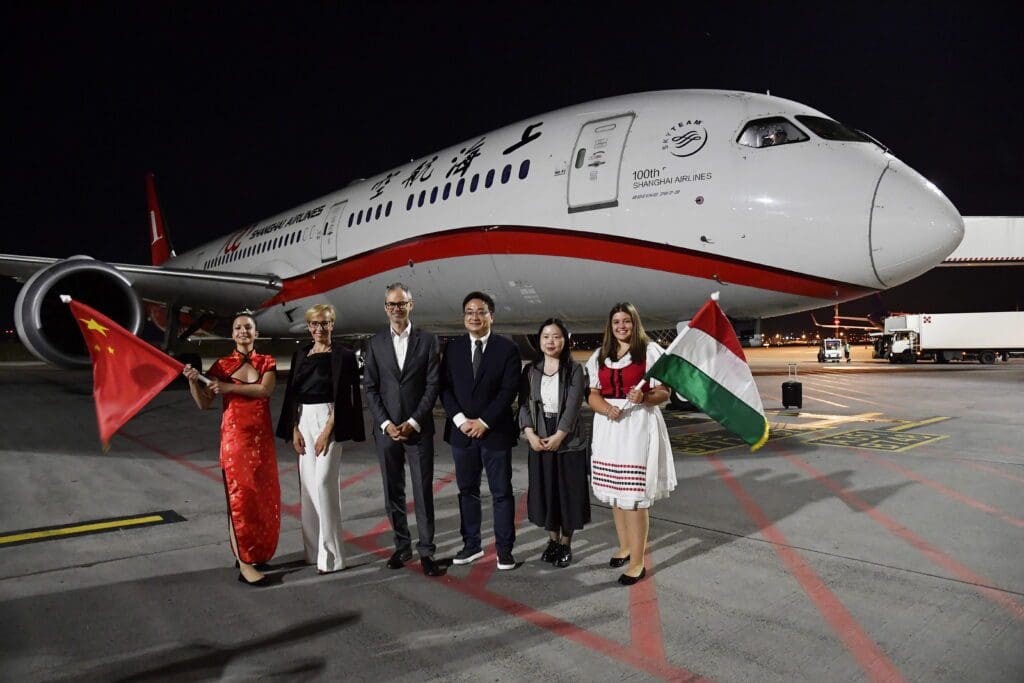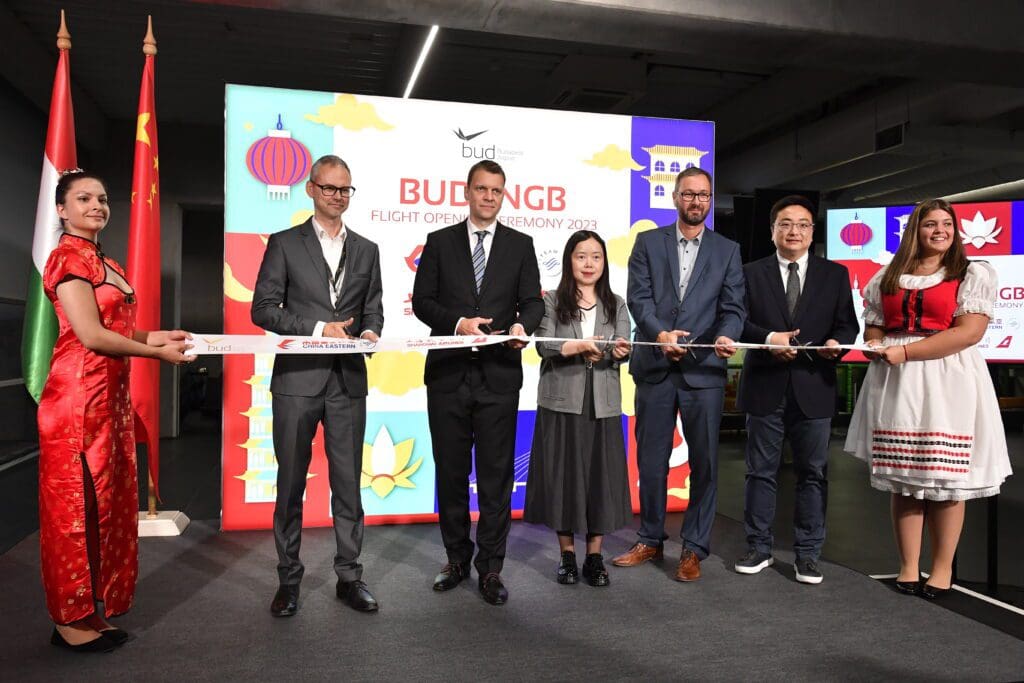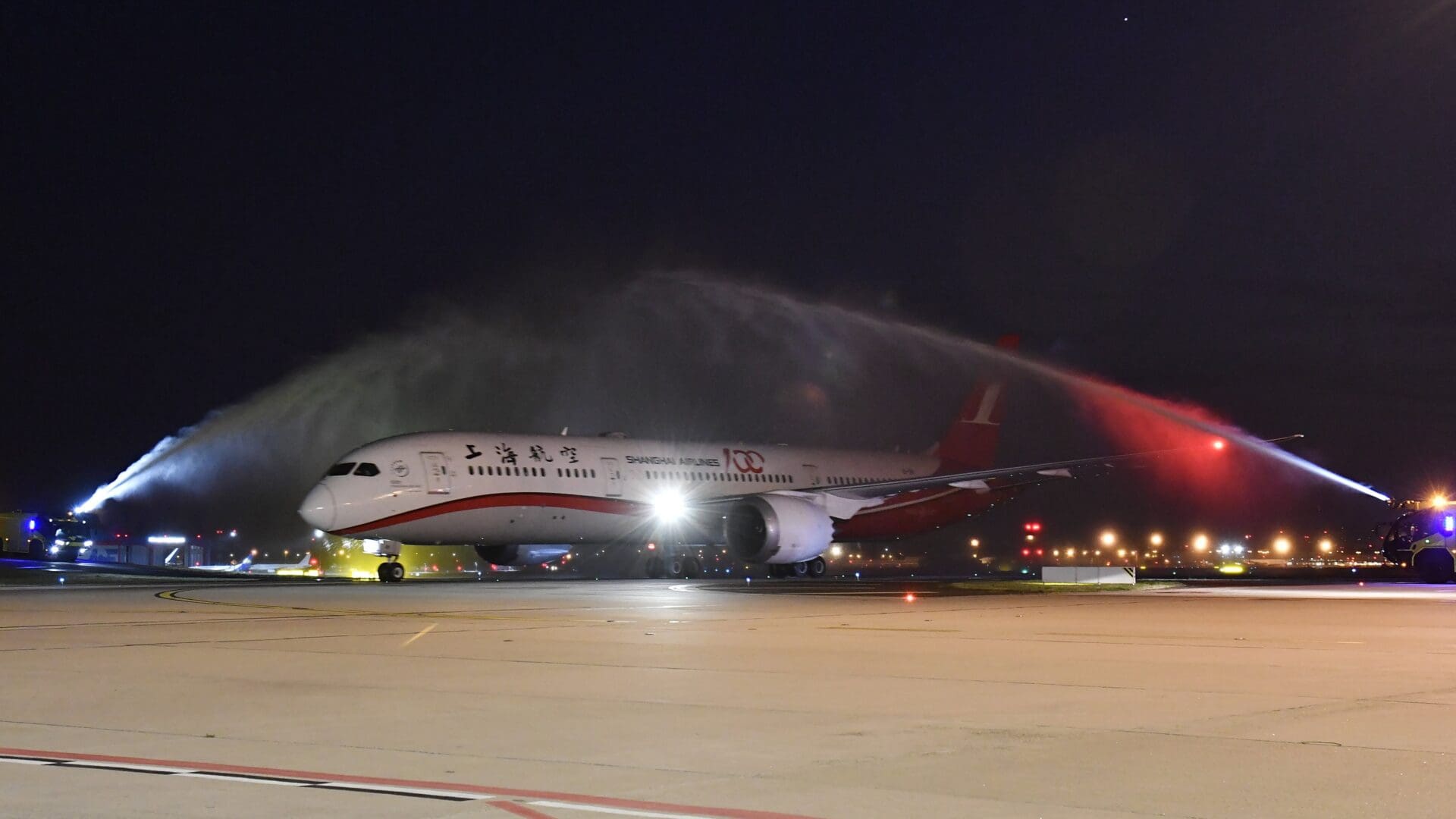The announcement of the Shanghai Airlines flight operating between Ningbo and Budapest holds even greater significance due to the ongoing war in the neighbouring region, Minister of State for Bilateral Relations of the Ministry of Foreign Affairs and Trade Tamás Menczer emphasised during the inauguration ceremony at Budapest Ferenc Liszt International Airport on Monday.
He reminded that a devastating war has been raging in Hungary’s neighbourhood for the past 15 months, and unfortunately, pro-war voices are predominant in the transatlantic world. However, it is also evident that globally, proponents of peace make up the majority, and the Hungarian government stands among those who seek peace. He stressed that
China has a tremendous role in amplifying the voice of peace.
China also desires peace, and Hungary supports Beijing’s peace plan regarding the war in Ukraine.
Menczer highlighted that the war in the neighbouring region has caused economic and energy crises both in Europe and worldwide. The separation of the European and Russian economies through harmful sanctions has taken place, which, from the perspective of the European economy, is equivalent to a shot in the lungs.
There are also attempts to separate the European and Chinese economies, which would be tantamount to decapitation after being shot in the lungs, as he put it. He stated that the Hungarian government does not support this.
The cabinet does not want the European Union and NATO to become anti-China blocs.
Instead of systemic competition, the Hungarian government supports strategic cooperation with China,
connectivity instead of bloc formation, the minister of state explained.

Menczer pointed out that China’s importance in the East and the valorisation of the East are evident. While 15 years ago, 80 per cent of global investments were financed by Western capital and 20 per cent by Eastern capital, today, this ratio has reversed, with 70 per cent of global investments being financed by Eastern capital and 30 per cent by Western capital. In 2010, China accounted for 9 per cent of the world’s GDP, while the European Union accounted for 22 per cent. This has also changed, with China now contributing 18 per cent of the world’s GDP and the EU producing 17 per cent. The minister of state added that in 2020,
the value of EU-China trade amounted to 860 billion euros,
with one-third of it attributed to Germany. He noted that this illustrates the divergence between political communication and reality. Menczer also emphasised that Hungary is proud that in 2017, Hungarian-Chinese relations reached the highest level of comprehensive strategic partnership. Today, Hungary is the number one destination for Chinese investors in Central and Eastern Europe, with the total value of Chinese investments in Hungary reaching 8 billion dollars.
In fact, most investments in Hungary came from China in 2020 and 2023.
The trade partnership between the two countries is evident as China became Hungary’s top trading partner outside of Europe in 2022. Last year, trade between the two countries increased by 6 per cent compared to 2021, and between 2011 and 2019, before the COVID-19 pandemic, the number of Chinese tourists visiting Hungary increased by nearly five times. The government hopes that after the pandemic, the situation will normalise, and more Chinese tourists will visit Hungary. There is fierce competition worldwide for Chinese tourists, who are among the highest spenders, thereby contributing to the growth of the tourism sector and the economy of the respective countries.
Menczer announced that Shanghai Airlines will operate flights twice a week from Ningbo to Budapest, providing direct access to four major Chinese cities: Beijing, Chongqing, Shanghai, and Ningbo. Starting from July, there will be ten passenger flights per week connecting Budapest and China. This will bring the number of flights close to the pre-COVID regional record of 13 flights per week, he reminded.

The significance of the connection is demonstrated by the fact that Ningbo has a population of 10 million and is located in Zhejiang Province, one of the wealthiest provinces in China with a population of 65 million. The port city is known for its exports of electronic devices, textile products, and industrial machinery, Menczer said.
First Secretary for Economic and Commercial Affairs of the Embassy of China Wu Dan stated that establishing air connections between Hungary and China is an important achievement in economic cooperation. Director of Tourism at the Hungarian Tourism Agency Szabolcs Juhász referred to the new flight as favourable news for the tourism sector as more and more Chinese tourists are arriving in Hungary via direct flights. Deputy CEO of Sales and Marketing at China Eastern Airlines and Head of the Budapest Office Qiu Jie emphasised at the ceremony that the Hungarian market is important in the European region, while deputy CEO of Commercial Affairs at Budapest Airport Balázs Bogáts highlighted their efforts to increase air connectivity between Budapest and major Chinese cities, aiming for Budapest to receive the highest number of Chinese flights in the region.
Related articles:








